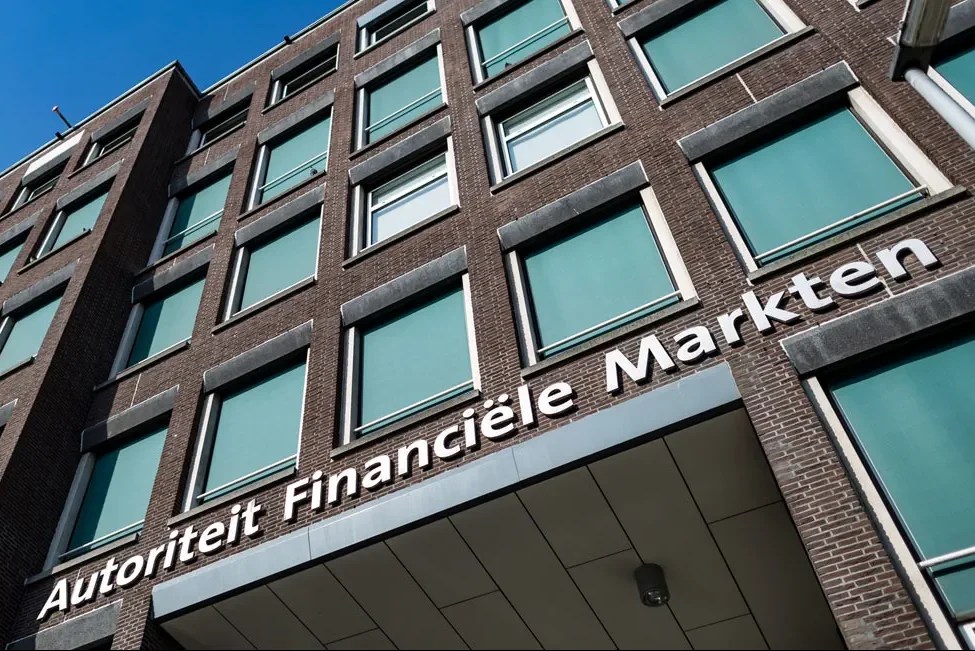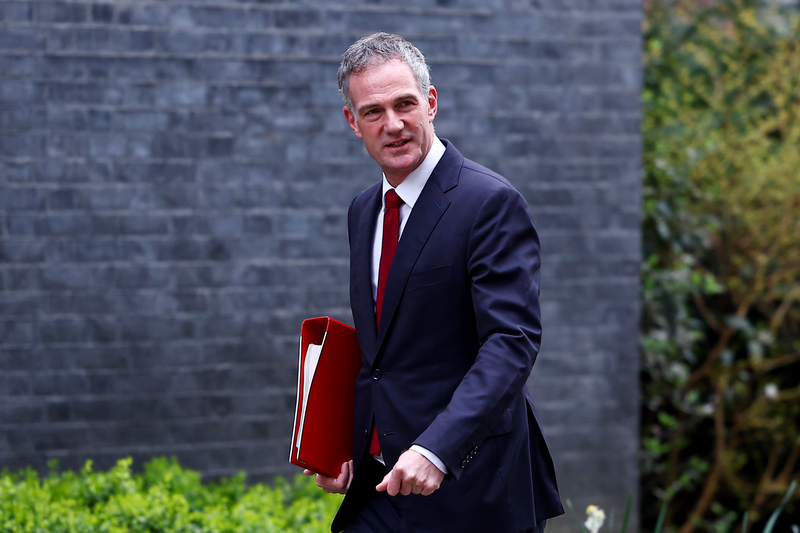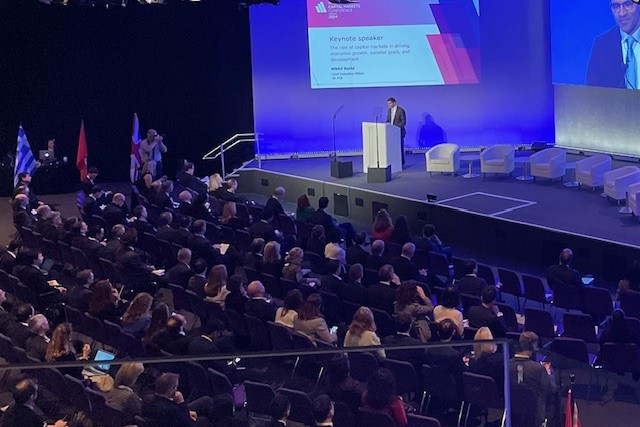Nikhil Rathi, FCA chief executive, delivered a keynote address at the FCA’s International Capital Markets Conference in London on October 8, an event that featured an impressive line-up of speakers.
In his address Rathi drew together the challenges facing regulators, governments and capital markets today. He pointed out that the increasing volatility in financial markets is no longer limited to a single asset class, but, because of the increasing interconnectedness of the financial system, can ripple across many in quick succession.
The unwinding of the yen carry trade that roiled the markets in August, and the CrowdStrike outage were both cited as examples of the fact that crises, when they do arise, often arrive so rapidly that they become very difficult to manage.
Although the SVB and First Republic bank runs were not explicitly mentioned, they certainly come to mind as illustrations of the unprecedented speed at which events in one institution or sector can have a systemic and potentially global impact.
Volatility and risk
This “sharp rise in volatility and resulting risk” is the result of a number of developments that go “beyond familiar geopolitical concerns”. They include:
- Rapid technological change and interconnectedness of systems (eg algorithms accounted for 60% of trading in major US exchanges).
- Market concentration (for example seven companies generated over half of the S&P 500’s returns last year).
- Centralization (investment management centralized in the largest firms).
- Liquidity issues (capital spread across exchanges, private markets, ETFs, derivatives).
Interestingly there appears to be an inherent dialectic tension between the last two points. While centralization as a result of a “heavier reliance on fewer firms means disruption”, the liquidity issues are the result of a “more fragmented system” that “works in normal times” but means that it “becomes harder to trade when volatility strikes”.
One of the solutions to the capital markets’ ability to respond to crises is to “nurture liquidity”. Rathi pointed out that one of the strengths of the UK capital markets are the “deep capital and liquidity pools, built over centuries” and supporting financing, trading, the hedging of risk and, in a point that was slightly less clear, “[b]inding finance and technology.”
Regulator exploring adjustments
He went on to state that the regulator is “exploring adjustments” that would encourage wholesale trading, improve market liquidity and that “may in turn reduce barriers for entry for specialized trading firms that don’t hold retail deposits.” He pointed with approval to the massive structural shifts in the US where “non-bank traders are now capturing flows across US equities.”
Unsurprisingly, the massive advantage that this changing and rapidly scaling US financial ecosystem enjoys over other global competitors was a theme revisited a number of times by other speakers during the conference.
The FCA chief executive proposed a number of other solutions that may help regulators, market players and advanced economies respond to this new era of global uncertainty:
- tailored regulation;
- international cooperation;
- investment in infrastructure;
- embracing technology;
- improving cybersecurity;
- a new mindset towards risk.
This last point seems to be a key theme for the FCA and for the UK’s new Labour government, and Rathi explicitly said that the “far-reaching” reforms to listing rules, as well as the “radical” proposals for prospectuses, are intended to incentivize the taking of greater risk and are meant to encourage more effective capital formation.
The emphasis on this last point was unsurprising, not only given the focus of the conference, but also because of the need for additional capital – the result of the demographic and structural challenges facing the UK and other economies around the world.
In terms of other items on the FCA’s regulatory agenda it appears that the focus in future may well shift slightly away from consumer protection and toward wholesale market regulation in order to encourage innovation and growth.
The speech suggested that the following work is already in progress:
- introducing T+1 settlement;
- UK consolidated tape;
- tokenization;
- relying on existing frameworks for AI adoption and regulation.
Looking back at his youth playing tennis on the “rugged courts” in England’s Cumbria, Rathi drew a parallel with the financial markets, pointing out that while every match played “needed a different strategy” the one thing that was always predictable was “the unpredictability of the game itself.” And reflecting on the unwinding of the carry trade he asked “did we get lucky?” Which leaves us to suggest that perhaps, when “playing chess on the run”, what a player needs most of all is a little bit of luck.












